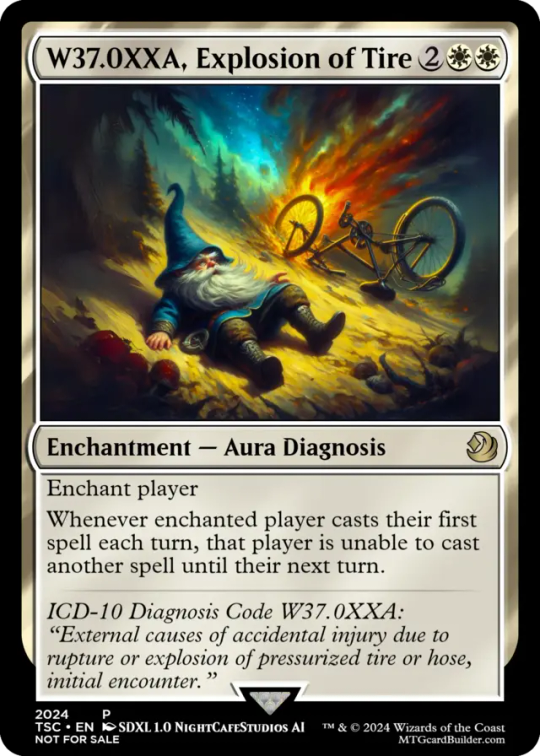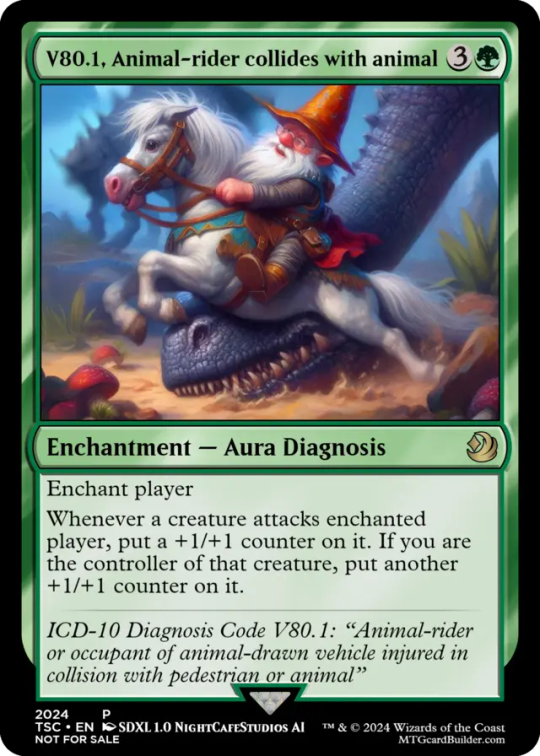#icd10
Explore tagged Tumblr posts
Text
getting diagnosed with a tic disorder
I just wanted to try out talking about that experience. maybe someone will relate, or find it useful.
i don't really remember how my tics started. i have a tendency of not acknowledging my feelings and brushing things off. i have always been a little jumpy, so I just blamed my weird shrugs and other weird unwanted movements on being easily scared.
they got really bad after my 18th birthday. and soon i asked my parents to see a neurologist.
before that we had conversations about me seeing a specialist, but i didn't want to hear about it. i wanted to pretend that everything was normal.
i went to the neurologist privately. which means that i didn't have to wait too long for the visit but I had to pay for it. my school needed a confirmation that i do have that disorder for my final exams.
i was very stressed, but the doctor was super nice. i had prepared a whole document in which i described all my symptoms, with dates if i could remember them, what my tics feel like, what makes them worse, what makes them better, family history of tics, or similar conditions, etc.
she was really nice and understanding. i don't remember the specific questions that she asked, but something about what is distracting/difficult about them. stuff like that.
she asked me to close my eyes and touch my nose, or left ear, stuff like that. also she had a little stick (like the ones doctor use to look into someones throat) and she would lead it from my fingertips up to my shoulders. she also checked my knee jerk reaction.
over all it was more of a chat, than an actual physical test.
she gave me a prescription for a brain scan (magnetic resonance, which i couldn't do due to having braces, and we switched to an MRI with contrast) - nothing wrong with it, thank fuck. and she prescribed me medication. i fucking hated those meds. they were Awful.
I never got a diagnosis from her. She gave me meds, and reassurance that this is probably psychological, which was enough at the time. Even tho she was a really good neurologist, tics were not her speciality, so i tried another guy.
AND BOY O BOY
he was supposed to be the lead specialist on tic disorders in my country. and maybe he was.
i spend 4h traveling from my city to the capital, just so i could see him.
i knew that he would probably asked my father my childhood, so i was prepared that my dad would be present for a while during the visit. but no, the doctor ever asked him to go out of the room, after the conversation about my childhood ended (it was brief, i had no symptoms in childhood). the doctor would ask my dad about other stuff as well, stuff i could have easily have talked about myself.
and then he asked me about my self harm, and depression, and suicidal thoughts (with my father still present in the room). i answered truthfully, even tho I REALLY wanted to lie. i came out of that visit with my F95.9 diagnosis, and a bunch of other diagnosis like anxiety and stuff. and a prescription for anti-anxiety drugs that i never bought.
i am not sure if the F95.9 is my disorder, but it does fit my symptoms somewhat, so that's why i use it. it's definitely not TS, and at this point idc anymore. the guy saw me one time, and with my dad present, so the diagnosis is very questionable imo, but hey. whatever.
#tics#tic disorder#motor tics#vocal tics#disability#neurodivergence#tourrettes#tics and tourettes#diagnosis#dsm 5#icd10#icd11
9 notes
·
View notes
Text
First impressions of The Magnus Protocol: ICD-10 but make it Spooky xD
#tmp#the magnus protocol#I'm fascinated#icd10#surely there are medical coders out there who also enjoy horror right#this is making me want to create this system though#lmao
5 notes
·
View notes
Text






by u/TerryTags on Reddit
#mtg#magic the gathering#icd10#custom magic card#universes beyond#reddit#r/custommagic#I love this so much it really had me laughing so hard the first time I saw it
2 notes
·
View notes
Text

F20.9 Schizophrenia unspecified ❤️🙏😎
3 notes
·
View notes
Text
The best after-visit summary I've gotten included my diagnosis code after getting an orchiectomy... Z90.79

so i recently got top surgery and this was on my discharge papers after a mild complication

134K notes
·
View notes
Text
Let's be real, nobody wants to mess up ICD-10 codes. I'm here to tell you how to classify a removal correctly and get paid for it! Also, here is some info on when removal is medically necessary
0 notes
Text
📌 Unlock Accuracy & Efficiency with Expert Medical Coding!
💡 Did you know? Medical coding errors can lead to revenue loss, claim denials, and compliance risks. That’s why healthcare providers trust RevMax Healthcare for top-tier Medical Coding Services ✅
✨ Why Choose RevMax? 🔹 Certified Coders – Expertise in ICD-10, CPT, HCPCS, and DRG coding. 🔹 100% Compliance – HIPAA & industry-standard accuracy. 🔹 Maximized Reimbursements – Reduce denials and optimize revenue. 🔹 Fast Turnaround – Reliable, efficient, and scalable solutions.
🚀 Whether you're a hospital, clinic, or physician practice, RevMax Healthcare streamlines your coding needs, so you can focus on patient care.
📍 Check out our services here: RevMax Healthcare – Medical Coding Services

#MedicalCoding#HealthcareBilling#RevenueCycleManagement#RevMaxHealthcare#ICD10#HIPAA#HealthcareInnovation
0 notes
Text
Understanding Osteomyelitis: ICD-10 Diagnosis Codes Explained
Osteomyelitis is an infection of the bone that requires timely diagnosis and proper coding for treatment and documentation. The ICD-10 codes for osteomyelitis vary depending on factors like the location, type (acute or chronic), and underlying cause (e.g., bacterial infection). For accurate billing and treatment, the correct code must be selected based on these criteria. Example Codes:
M86.00 - Acute hematogenous osteomyelitis, unspecified site
M86.10 - Chronic osteomyelitis, unspecified site
#Osteomyelitis#ICD10#MedicalCoding#Diagnosis#BoneInfection#HealthCare#ICDCodes#MedicalBilling#HealthcareProfessionals
0 notes
Text
0 notes
Text
Medical Coding & Billing Courses — Launch Your Career in Healthcare | Transorze Solutions Online Learning
Why Medical Coding Matters Medical coding and billing are integral to the healthcare industry, ensuring precise documentation and streamlined operations. For those aspiring to enter this profession, Malappuram offers diverse training options catering to different learning styles and career objectives.

Understanding Medical Coding Training in Malappuram
Significance of Medical Coding
Medical coding involves translating healthcare diagnoses, procedures, services, and equipment into standardized alphanumeric codes. These codes are vital for billing, insurance claims, and maintaining accurate medical records. Comprehensive training equips individuals with the expertise to excel in this specialized field.
Training Options
Comprehensive Courses: Cover topics such as medical terminology, ICD-10 coding, CPT coding, and billing practices.
Certification Programs: Many institutes provide certification courses recognized by esteemed bodies like the AAPC and AHIMA, enhancing career prospects.
Flexible Formats: Students can choose between online and offline classes, accommodating various schedules and preferences.
Leading Training Institutes in Malappuram
Chiss Solutions: An AAPC-approved institute offering both online and offline courses, emphasizing practical training and certification preparation with 100% placement assistance.
CliniIndia: Specializes in preparing students for certification exams with a hands-on approach to ICD-10 and CPT coding systems.
Transorze Solutions: Renowned for healthcare-focused programs, providing comprehensive support and a customer-centric approach.
Key Topics in Medical Coding Courses
Medical Terminology: Familiarity with healthcare-specific language.
ICD-10 & CPT Coding: Mastering coding systems for diagnoses and procedures.
Medical Billing Integration: Understanding the synergy between coding and billing.
Certification Preparation: Focused sessions to aid exam readiness.
Career Prospects
Medical coders enjoy promising opportunities in settings such as:
Hospitals
Clinics
Insurance firms
Remote work environments
The growing demand for skilled coders makes this an attractive career path with strong job stability.
Course Costs
Training fees vary by institute and program structure. Prospective students should contact institutes directly for detailed pricing and information on additional expenses, including certification exams.
Conclusion
Malappuram provides ample opportunities for aspiring medical coders to receive high-quality training. With flexible formats and industry-recognized certifications, individuals can find programs tailored to their career ambitions. As healthcare evolves, the role of medical coders remains critical to ensuring accurate reimbursements and efficient healthcare operations
#medical coding#coding#clinics#Insurance firm#transorze solutions#CPT#icd10codes#icd10#learning#careers
1 note
·
View note
Text
Why Medical Coding is THE Career to Watch in 2024
Ever heard of medical coding? It might sound super technical, it’s one of the coolest, most in-demand careers out there right now. If you’re looking for a job that’s future-proof and lets you work in healthcare without becoming a doctor or nurse, this might be your thing!
So, What exactly is Medical Coding?
Basically, it’s about turning medical procedures and diagnoses into specific codes. These codes help hospitals and insurance companies keep everything organized—billing, records, claims—you name it.
Why is Everyone Talking About Medical Coding?
Demand is exploding!
Healthcare is growing fast, especially with more people needing care.
With everything going digital, certified coders are becoming essential.
It’s a global career—think remote jobs and opportunities abroad!
Why YOU Should Get Into It
Imagine having a job that’s secure, pays well, and doesn’t require years of studying. Plus, you get to be part of the healthcare world, making a real impact behind the scenes.
Where Do You Start?
That’s where Transorze Solutions comes in! They offer:
Easy-to-understand courses (even if you’re new to this).
Certifications that employers love.
Friendly trainers who know their stuff.
Help landing your first job—because starting out can be tough.
Whether you’re fresh out of school or looking to switch careers, this could be the perfect time to jump in.
Why Wait?
Medical coding isn’t just a job—it’s a ticket to a stable, flexible, and rewarding career. Ready to start?
#MedicalCoding#HealthcareCareers#CareerGrowth#TransorzeSolutions#FutureJobs#WorkFromHome#RemoteJobs#MedicalScribes#HealthcareTraining#ICD10#CareerSwitch#LearnAndGrow#2024Goals#MedicalBilling#MedicalCodingCourses
1 note
·
View note
Text
#CPTCode11042#MedicalBilling#HealthcareCoding#Debridement#WoundCare#MedicalReimbursement#CodingTips#Modifiers#ICD10#BillingErrors#HealthcareProfessionals#MedicalClaims#CodingMistakes#Reimbursement#MedicalCoding#BillingCompliance#HealthcareDocumentation
0 notes
Text
Understanding “HFREF” ICD-10 Classification
The ICD-10 code for HFREF is I50.2 - Systolic (congestive) heart failure. 🔹 I50.20: Unspecified 🔹 I50.21: Acute 🔹 I50.22: Chronic 🔹 I50.23: Acute on chronic
Always code accurately based on the patient's condition! 🩺
0 notes
Text
Obesity is a serious issue in the United States that affects both the general healthcare system and the health of its citizens. As a result, managing obesity and its associated risks is crucial to understand and control. For this issue, a reputable weight loss counseling service can be helpful. The weight loss counseling icd-10 codes are used when reporting these services. Do you know, what are the ICD 10 code for weight loss counseling, though?
0 notes
Text
youtube
1 note
·
View note